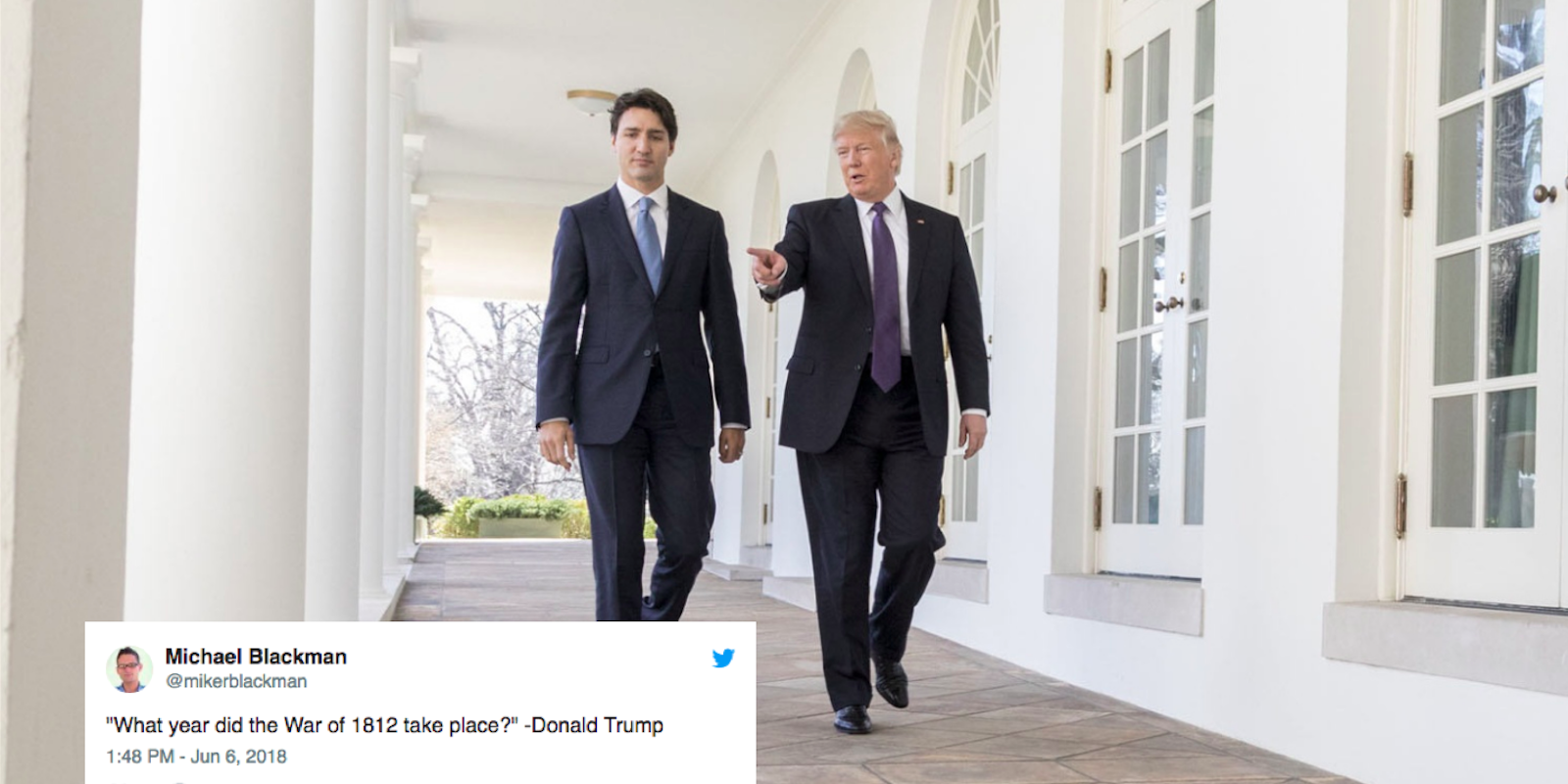In a heated phone call on May 25, President Donald Trump reportedly told Canadian Prime Minister Justin Trudeau that his administration’s new aluminum and steel tariffs on Canada were because Canada had “burned down the White House.”
Sources claimed that the president invoked the War of 1812 when his Canadian counterpart asked him how he could justify the tariff change as a “national security” issue, which the administration had done under a 1962 trade law.
“Didn’t you guys burn down the White House?” Trump is said to have shot back.
The White House was, in fact, burned down by British colonial forces in August 1814 in response to an U.S. attack on York, Ontario, a year earlier. Canada, which was a British colony at the time, did not gain independence until 1867.
Twitter users found the error both embarrassing and hilarious.
https://twitter.com/drknstormynite/status/1004420871857979392
https://twitter.com/mikerblackman/status/1004419839476158464
I am completely embarrassed for our nation.
— Brian Krassenstein (@krassenstein) June 6, 2018
Trump reportedly told Canadian PM Trudeau that the tariffs on Canada were due to National security concerns.
As an example he used the war of 1812, claiming that Canada ‘burnt the WH down’
That was Britain, 206 years ago, you idiot!
“War of 1812, that’s why! God Bless America, land that I lov—“ pic.twitter.com/eHTTkkEOSp
— TrivWorks (@TrivWorks) June 6, 2018
According to CNN, the quip was intended as a joke but was not received so.
“The impact on Canada and ultimately on workers in the U.S. won’t be a laughing matter,” one source told the network.
Trudeau was angered Trump utilized the rarely invoked “national security” provision to justify the tariffs, and in doing so was alluding that Canada was a threat to U.S. national security.
Enraged, the Canadian prime minister commented in an interview with NBC’s Meet the Press on Saturday, blasting the move as “insulting” way to classify that an historical ally.
“The idea that, you know, our soldiers who had fought and died together on the beaches of World War II and the mountains of Afghanistan, and have stood shoulder to shoulder in some of the most difficult places in the world, that are always there for each other, somehow—this is insulting to that,” he said.
In response Canada implemented retaliatory tariffs on U.S. goods.
Trump expanded the tariffs on steel and aluminum to the United Kingdom, Canada and the European Union on May 31 after extending exemptions in March. Some world leaders lamented that the president was needlessly starting a trade war between Western countries that would only ultimately hurt workers and raising tensions between economically close allies.


